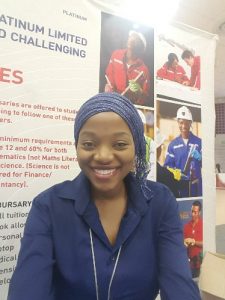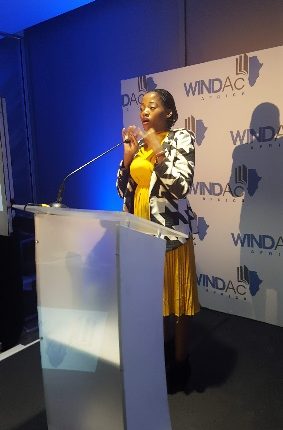About Makaepea Peta
Makaepea Peta , MPhil ,is exploring the efficacy of solar photovoltaic (PV) technology as an alternative fuel for rural households in Atok, Limpopo.
Solar PV technologies convert sunlight into electrical DC (direct current) energy which is then converted to AC (alternate current), which is the current that appliances use. Makaepea Peta is currently doing research that explores the efficacy of solar photovoltaic technology (i.e. solar power) as an alternative fuel for rural households in Atok, Limpopo. If the solar PV is proven to be an efficient alternative fuel, it can be used in parallel with Hydrogen and Fuel Cell (HFC) in a micro-grid setup to power the rural households. The solar PV would generate electricity that is used to charge batteries through the MPPT converters. An example of how solar PV and HFC work together is highlighted on the following link where a HFC system was deployed in Poelano Secondary School in the North-West province to enable the rural school to access off-grid electricity for ICT and lighting.
https://www.news24.com/news24/green/news/rural-north-west-school-gets-green-electricity-20180413

Makaepea Peta
Tell us about yourself – A brief biography on your place of birth, educational history (high school and higher institution), work etc…
Born in a mine village called Mogabane, in Limpopo. I attended Lefakgomo Secondary School. I obtained a Geology degree at Wits University in 2012, BSc Honours in Applied Science in Mining in 2014 from University of Pretoria and BSc Honours in Energy Studies in 2018 from University of Johannesburg.
Why did you choose this career path and what influenced you to pursue it?
In 2014 while on a vacation in Durban, I saw a lady charging her phone with a power bank, which was the first time I had seen a power bank. It was such an interesting concept to me and I saw a business opportunity. In 2015, I started selling power banks with the hope of growing the remote/mobile/off-grid appliances business. Later that year, I attended a workshop on biogas fuel generation, and my interest in Renewable Energy (RE) as an alternative energy of use in rural areas was sparked. I have since been more and more interested in RE for rural households.
What average marks in matric (maths and science) are required to study this degree in university?
You need to get at least 60%
Did you always intend to be a scientist, if not, what was your dream career?
Growing up in a mining village, I wanted to be the big boss earning the most in the mine. Metallurgy was my first choice after matric.
At present, what are you working on?
I am exploring the efficacy of solar photovoltaic technology (i.e. solar power) as an alternative fuel for rural households in Atok, Limpopo.
What is your opinion on female representation in the energy or renewable energy industry?
I think we still have a long way to go. I would like to see more women involved in the manufacturing of renewable energy technology products. Energy policy and politics also needs more women, as we are the ones handling households and therefore understand fully the household’s energy needs.
What is the biggest challenge you have encountered so far in your journey as a scientist and how did you overcome it?
Growing in the field has been a real challenge for me. I felt stagnant for a long time. I started attending more conferences, joining different networks and asking for help from different people on how they made it to where they are and how I could improve.
Which undergraduate degree should someone enrol in, in order to become a specialist in your field?
There are various aspects of the field I am in. Some degrees which can be applied in the field would be electrical engineering, mechanical engineering, chemical engineering, environmental science and management.
Share a turning point or defining moment in your work as a scientist?
Getting an opportunity to research and find possible solutions that affect the lives of the residents of my village is an honour for me. I hope the findings of my study will be considered by policymakers and the livelihoods of my community will be improved.
What is your advice to young, aspiring female scientists and students?
Do your research in whichever field you want to follow. Information is readily available on your phone, so use those platforms to learn. There is a big difference between having a job and building a career, and one needs to focus on building a career. A big part of building a career is creating networks and being recognized as a good professional. Get a mentor, follow people in your field of study on platforms such as LinkedIn and Research Gate to get a better understanding of what lies ahead, and also for some inspiration. You’ve got this, my lady!
What is your next move career wise and what are you most looking forward to?
Study, Study and Study. I look forward to discovering more interesting facts about my people and providing solutions for them.


